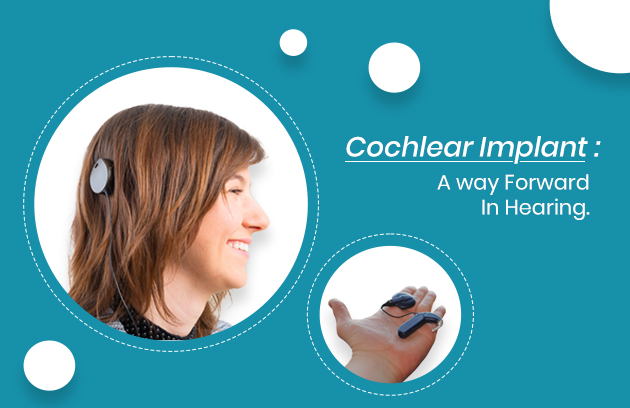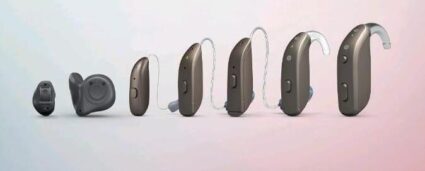Cochlear Implant : A way Forward In Hearing.
At Asha Speech & Hearing Clinic, we along with the parents understand the need of giving the best of health and a safe future to our kids. Children and their families have a wide range of opportunities when they have good hearing. Your child’s hearing is crucial to many facets of their life.
Early cochlear implantation, especially before the age of two, can give enough auditory input for children with severe to profound Hearing Loss to support the development of their speech and language.
Now let us know more about what a Cochlear Implant is and how it works:
Cochlear Implants change sound into electrical impulses that are then transmitted to the inner ear and brain to help a person detect sound, as opposed to hearing aids, which boost sounds in damaged ears. There have been Cochlear Implants for 40 years. For treating severe hearing loss, they are the norm. Hearing aids and Cochlear Implants both aid in the user’s ability to hear noises and understand speech, but in very different ways. With hearing aids, sound is amplified by sound waves moving tiny hairs in the ear called cilia, which send an electrical current to the brain that’s perceived as sound. An increasingly popular alternative for treating hearing loss is cochlear implants. A cochlear implant, which resembles a hearing aid worn behind the ear, is made up of several essential parts. The speech processor, which is commonly worn behind the ear, is the implants outside component.
Who do Cochlear Implants help?
Children with severe to profound hearing loss in one or both ears, or those who only partially benefit from hearing aids, are candidates for cochlear implants. If hearing aids are ineffective for your child, even with modest hearing loss, a cochlear implant may still be an option. For optimal hearing and speech and language development, early intervention is crucial, including implantation when necessary. We at Asha Speech & Hearing Clinic specialise in this and have helped numerous families.
These medical gadgets primarily help children learn to hear, which fosters the development of spoken language. Age of implantation is important to preserve the amazing plasticity of early development and lessen the impact of deafness on the growing auditory system. Following cochlear implantation, therapy must focus on oral and hearing communication, education, and other forms of support. These factors can be influenced by well-known social determinants of health; specifically, outcomes in children decline with declining socioeconomic status and parental educational attainment.
Hearing improvement: Your child’s hearing and understanding of speech can both be enhanced by cochlear implants. Lip reading and sign language are still useful for improving speech perception and communication in people with Cochlear Implants.
Speech Development: The child’s speech clarity and potential spoken and listening language development are both enhanced by Cochlear Implants. There are various actions parents can take to improve outcomes for kids who have cochlear implants.
Future learning and career opportunities: When using assistive technology, cochlear implant recipients can hear better in the classroom. As kids get older, Cochlear Implants can help them gain access to new professional prospects.
Safety: The capacity to hear potential threats or notifications like sirens and other crucial sounds is one of the most obvious advantages of a Cochlear Implants. The advantages of implantation rise for kids who have access to both ears for hearing. In conclusion, cochlear implants help children’s hearing develop, and the best results come from giving them early exposure to sound in both ears.
Childhood Activities: Cochlear Implants recipients can engage in practically all typical kid activities. It is crucial to use waterproof protection or take the device out of the case whenever the CPU might get wet or immerse in water (i.e., swimming or in the bathtub). On plastic slides, playgrounds, and ball pits, precautions are advised to prevent the gadget from being damaged. Additionally, it is advised that the kid wear a helmet while playing sports or riding a bike.
Conclusion:
At Asha Speech & Hearing Clinic, we understand that a cochlear implant may be necessary if using Hearing Aids does not enhance speech or hearing. At Asha Speech & Hearing Clinic our audiologist will utilise hearing exams and imaging tests to assess whether the operation is appropriate and how much hearing loss a person has.





